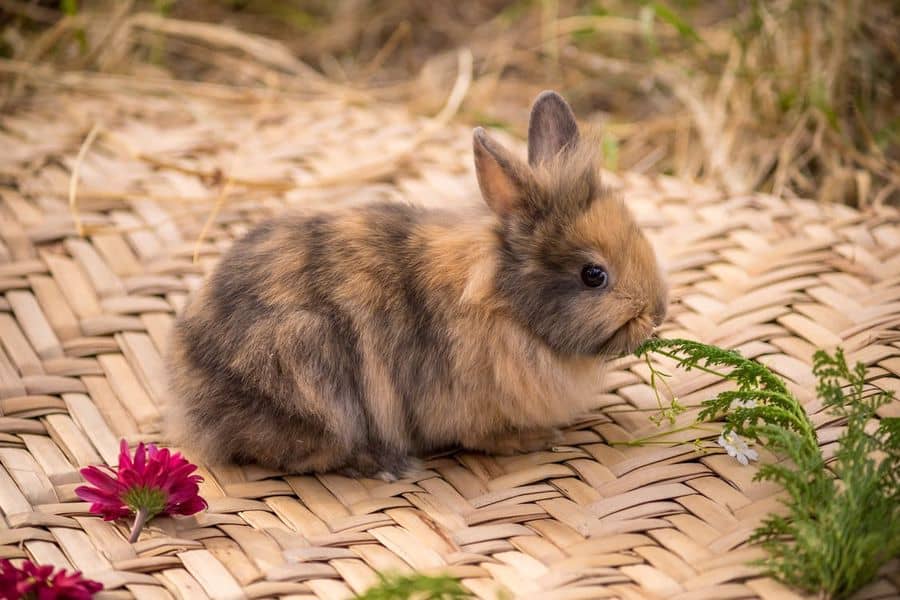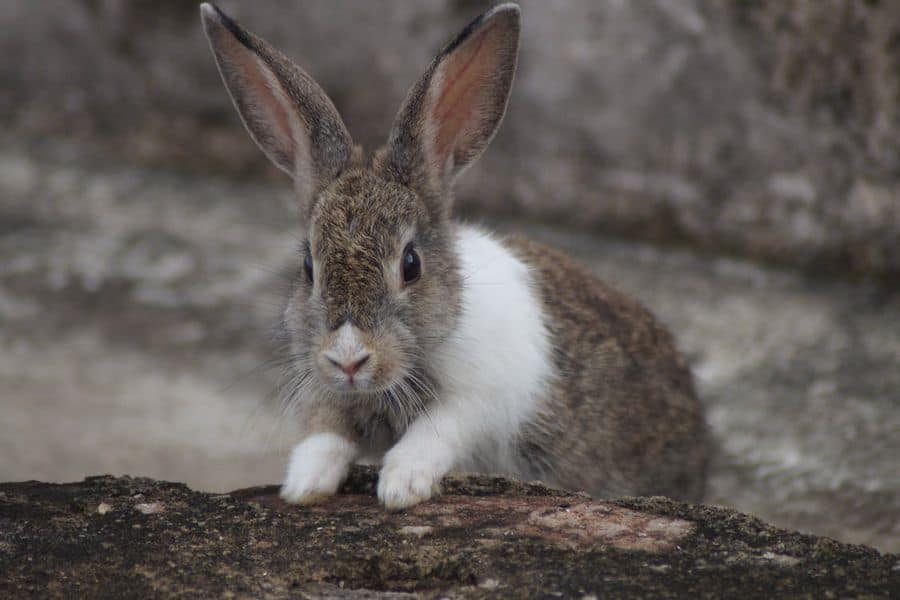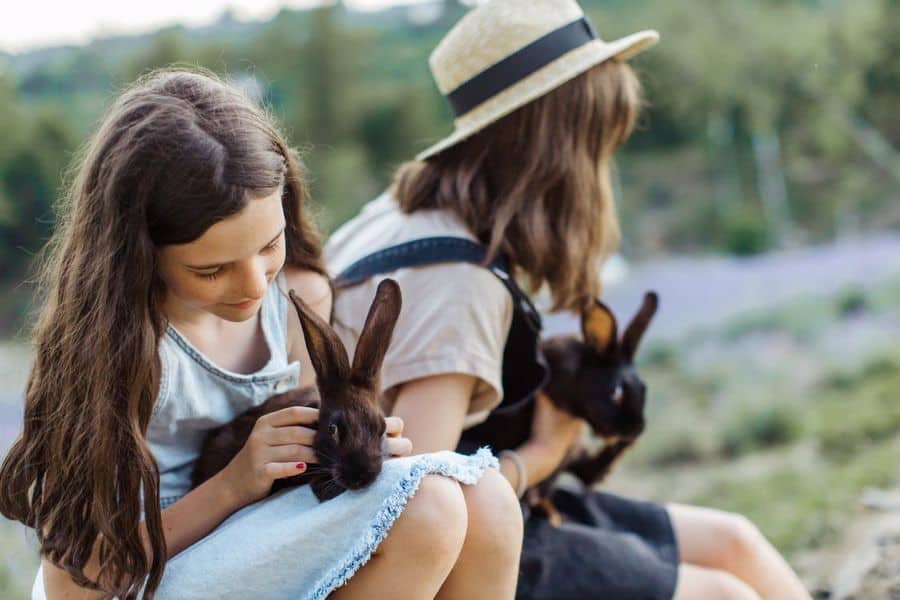A rabbit losing weight can be a bad sign, especially if it’s hampering your pet’s daily activities. This leads us to the question, why is my rabbit losing weight? We’re going to discuss the causes of weight loss in rabbits, its signs, and what you can do to treat it.
Contents
Why Is My Rabbit Losing Weight?
Your rabbit is losing weight due to a decreased appetite and reduced calorie intake. This may be due to improper diet, anxiety or stress, old age, or parasites. Other possible reasons include dental, respiratory, gastrointestinal, cardiovascular, musculoskeletal, and digestive system diseases.
As a responsible pet owner, it’s essential that you know the reasons why your rabbit is losing weight. In this way, you can watch out for symptoms and provide the best care.
Diseases
Diseases in the different body systems are among the primary reasons why rabbits lose weight.
- Dental: If your rabbit has abscesses or overgrown incisors, this can cause discomfort when eating. In effect, your pet would find it hard to finish its meal, resulting in reduced appetite.
- Cardiovascular: Rabbits may suffer from poor blood circulation or oxygen deprivation. This may cause your pet to experience weight loss, lethargy, depression, and difficulty breathing.
- Digestive: Some rabbits may ingest hair during molting. When this happens, hair will take up space in its bowel, making it difficult for your pet to expel feces. Eventually, this can slow down or stop proper digestion, hindering your pet from eating normally.
- Musculoskeletal: Heat stress, otitis interna, and other bacterial infections can target a rabbit’s musculoskeletal system. These problems may lead to a loss in muscle and weight.
- Respiratory: Snuffles can also cause rabbits to lose weight. Watch out for other side effects like sneezing, snotty eyes, and fast breathing. Another weight loss cause may be Pasteurellosis, a common respiratory problem in rabbits, which comes from mating or fighting wounds.
Poor Nutrition
If your bunny is losing weight alongside having diarrhea, this may be due to digestive issues. This may stem from a high-carbohydrate diet or a lack of fiber.
Rabbits are herbivores, so they should mainly eat plants. Pet rabbit diet should primarily consist of fresh vegetable greens and grass hay to ensure fewer calories with high water content.
A rabbit that relies too much on feed may suffer from microbial overgrowth, triggering a potential weight loss. Lack of freshwater and misuse of supplements may also cause your pet to lose weight.
Old Age
Old rabbits tend to either lose or gain weight. As your pet gets older, it may naturally start to lose appetite and muscle mass as it moves around less. In some cases, it may be due to illnesses like painful arthritis.
Anxiety or Stress
When rabbits get stressed, they may freeze, have watchful, bulging eyes, or be excessively jumpy. These reasons may cause anxiety or stress in rabbits, preventing them from eating properly.
- If there are other pets in the house, particularly bigger ones like cats and dogs, your rabbit may see them as a threat. In the wild, cats hunt and eat rabbits, so your pet may feel stressed when such animals get near its cage frequently.
- Loud noises from barking dogs, noisy vehicles, and active children may also scare your pet.
- Rabbits are social animals, so they typically benefit from having a cagemate. However, if there’s a dominant rabbit guarding the food, it may prevent the other rabbits from eating and getting the essential nutrients.
Parasites
If your rabbit has parasites, it may lose nutrients from the gut or blood. This may happen when rabbits eat grass, flowers, or other outdoor plants. Young rabbits are the most susceptible to parasitic infections, leading to lethargy, diarrhea, and weight loss.
What Are the Effects of Weight Loss on Rabbits?
A rabbit usually has a slim body. However, if your pet is losing weight, it may experience these symptoms. Being alert and noticing these signs can help prevent life-threatening conditions.
- Emaciated body with a prominent backbone or a caved-in abdomen
- Dull, rough coat
- Lethargy, inability to stretch out, or reluctance to move
- Fewer, misshapen, or drier fecal pellets
- A habit of searching for food or water
- Grinding or chattering of teeth
- Partially closed eyes
- Diarrhea, caused by excessive drinking
- Fever due to bacteria
What Should I Do If My Rabbit Is Losing Weight?
If your rabbit is losing weight due to illnesses, poor nutrition, stress, old age, and parasitic infections, there are things you can do to help your pet.
- Schedule a vet checkup: This is the first step to ensuring your rabbit enjoys a healthy life. Our clinic can conduct blood work, physical examination, and other lab tests to determine potential problems. I can also prescribe the appropriate nutrition plan, including supplements and medications like fluid therapy and pain management.
- Change diet: The rabbit diet generally contains 80% to 85% hay. You should also include fiber-laden foods like romaine lettuce, mustard greens, and carrot tops.
- Improve living conditions: It’s important to remove stress factors to improve the living environment of your rabbit so that it can eat properly. With that said, position the rabbit cage in a spot with temperatures ranging between 60 to 65 degrees Fahrenheit. Keep the enclosure away from foot traffic, large pets, and children.
Related Questions
Why Is My Rabbit Losing Fur?
Your rabbit may lose patches of fur due to parasite infections from mites or fleas. Other reasons may include pregnancy, overgrooming, hormonal imbalances, bacterial infections, and diseases. Fighting with another rabbit can also cause your pet to shed fur.
How Long Should I Keep My Bunny Out of the Cage?
Keep your bunny out of the cage for at least 1-2 hours per day, especially in the morning when they are the most active. This enables them to have a bigger space to roam and exercise. Do this to keep your rabbit healthy to avoid unnecessary weight loss.
Conclusion
Rabbits lose weight due to improper diet, stress, old age, parasites, and diseases. Make sure to monitor for signs, particularly decreased appetite. A routine checkup with a veterinarian can help your bunny live a happy, healthy life.



